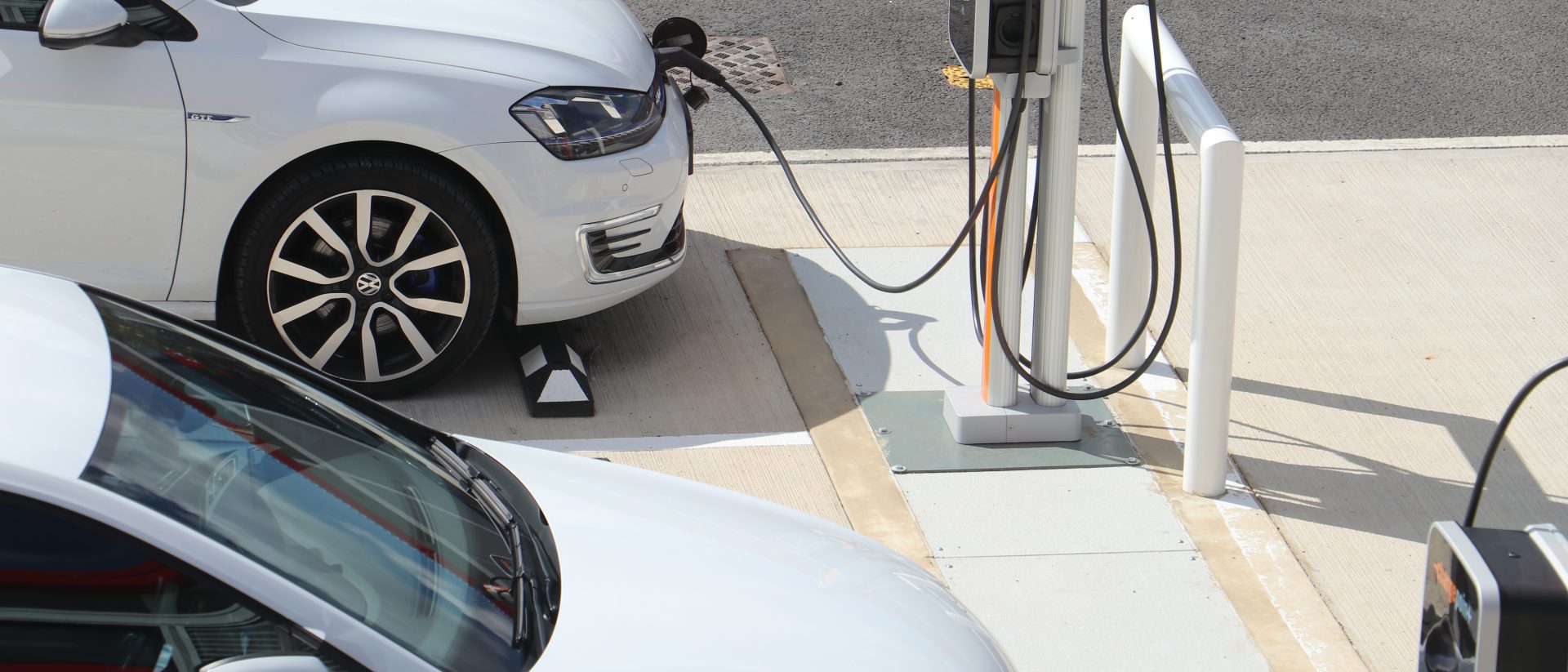Calls for all public electric vehicle (EV) charging sites to have accessible charging mandated are growing louder with Baroness Jenny Randerson backing the likes of ChargeSafe, Motability Foundation and RECHARGE UK in calling for Government action.
Baroness Randerson has highlighted the importance of providing accessible electric vehicle (EV) charging infrastructure after attending a meeting of the All-Party Parliamentary Group (APPG) on Electric Vehicles, where MPs and attendees heard from representatives from Motability Foundation, Motability Operations and ChargeSafe.
They spoke about providing an inclusive experience for people with accessibility needs, and the mandating of BSI PAS 1899:2022* – a British specification giving designers, procurers, and installers essential specifications on how to provide accessible public charge points for electric vehicles, which was co-sponsored by the Motability Foundation and UK Government.
British Specifications are voluntary unless referred to in legislation, so at present charge point providers, landowners and land administrators are under no legal obligation to conform with PAS 1899.
RECHARGE UK recently called for all public electric vehicle (EV) charging sites to have accessible charging mandated. The group, which is the EV arm of the REA (Association for Renewable Energy and Clean Technology), says that mandating accessibility requirements for public electric vehicle charge points will ensure wheelchair users always have equal access to charge their vehicle.
Baroness Randerson, who has submitted written questions to the Lords on accessibility, said:
“We live in an ageing society and around one in five adults have a disability. It’s essential that charging point infrastructure is provided with all drivers in mind. The UK cannot transition to EVs unless we can all use them. The industry needs to see the bigger picture – everyone is a potential customer.
“It surprises me how little thought has been given to making EV charging as easy as possible. It costs as much to install a charger in an unsuitable location as it does to make it properly accessible. I am not just talking about wheelchair users but also about the weight of the equipment, for instance. Putting EV chargers at the far corner of a large car park deters women from using the equipment after dark.”
Baroness Randerson, who is an electric vehicle driver herself, has called for urgent government action to address the issue. She added: “We urgently need a government led strategic plan with incentives to encourage good practice and to ensure that EV charging “deserts” get sufficient investment to encourage people to buy EVs wherever they live. It’s a chicken and egg thing.
“I would back mandating PAS 1899:2022, because the current guidance is ineffective. Once we have lots of examples of good practice it will be easier for others to understand and copy it.”
Catherine Marris, Head of Innovation at the Motability Foundation, said:
“I’m very grateful to the APPG on EVs for inviting me to present on the work we are doing to ensure public charging is accessible to all. We estimate there will be 2.7 million disabled drivers in the UK by 2035, and up to half will be at least partially reliant on public charge points. Therefore, it’s vitally important that public charging is accessible, otherwise there is a real risk that disabled people are left behind by the transition to EV. The PAS 1899 standard that we co-sponsored provides a clear specification on how to make charge points accessible, and the industry response to it has been encouraging so far. However, with infrastructure being delivered at great pace we believe that the standard should be mandated with a phased approach to ensure public charge points are accessible to all.”
Kate Tyrrell, CEO & Co-Founder of ChargeSafe, added:
“It is critical that we recognise the reality of challenges presented when it comes to the delivery of safe and accessible charging infrastructure. To ignore inclusive design now will present unnecessary challenges to millions of people in the future who will come to depend on public chargers. In our experience, developers continue to ignore their obligation to produce accessible charging conditions. Whilst the BSI PAS 1899 sets out clear guidelines to achieve accessible standards, the implication that it is an advisory does not go far enough, which is why mandatory standards must now be introduced and ensure nobody is left behind in the transition to electric transport. In the interests of ongoing sustainable development, delivering accessible infrastructure today will ultimately benefit us all.”
Matthew Adams, Transport Policy Manager for the REA, said:
“Now is the opportunity to safeguard the disabled, elderly and vulnerable and ensure our charging sites are accessible for all and safe to use. This is a once in several generations’ opportunity and at the moment we are wasting it. Petrol forecourts have never been accessible, but charging sites, particularly as most are unmanned, need to be.
“Mandating accessibility requirements through a phased approach could transform charging sites up and down the country at a speed that is manageable for all concerned and would give increasingly greater accessibility to wheelchair users across the country as more of them begin to adopt EVs.
“As the secretariat for the EV APPG, it is our pleasure and privilege to continue to provide educational sessions to politicians to ensure they are aware of a number of important issues from across the EV sector.”

